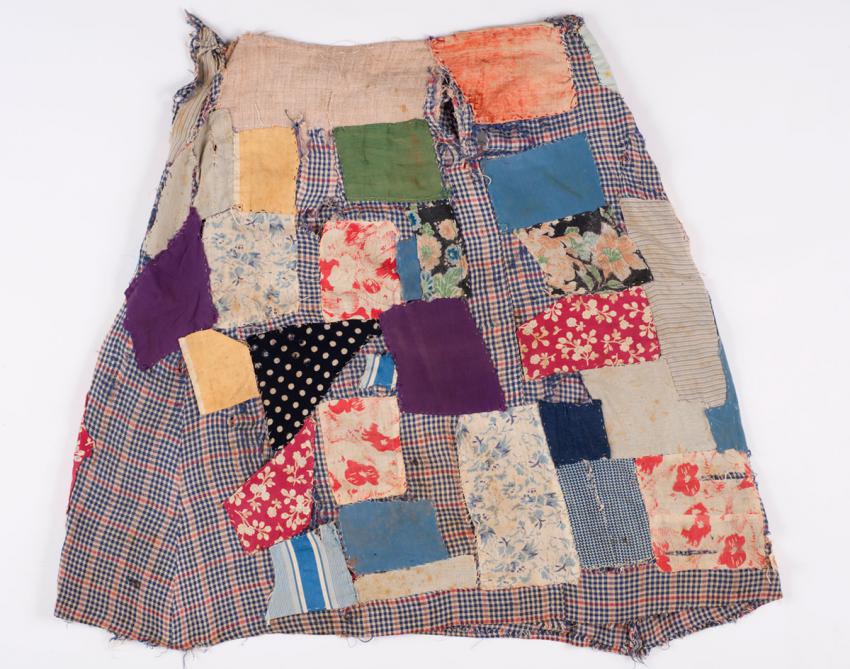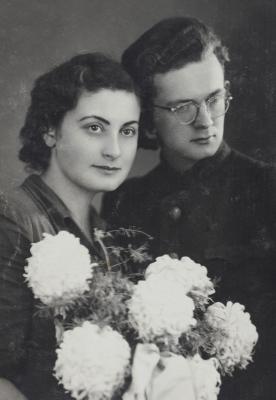At first the family was sent to the Kirnasovka-Bilina camp, where they were forced to work in the fields in extreme conditions of hunger, damp and cold. From early morning till late at night they were required to dig with their bare hands for beets that were buried deep in the snow.
From there the family was sent to a camp in the city of Tulcin, where many deportees were being held. Moshe was sent to a different camp on the other side of the Bug River, where he remained until the camp was liquidated and the prisoners, among them Moshe, were murdered and buried in a mass grave.
Rosa fell ill with typhus and glandular fever, and for long periods lost contact with her family, having no idea of their fate. She managed to survive thanks to the sewing and knitting she did for the Ukrainian farmers who paid her with potato peels. The summer dress that she had been wearing when the family was deported from Czernowitz served her throughout her incarceration in Transnistria. In time, the dress became a skirt that Rosa patched over and over with sacking and remnants of torn clothes that she found.
At some point during their ordeal, Jacob and Yachet were able to send twelve-year- old Sophie to the children’s home for Transnistria orphans in Bucharest, where she survived. She was the first to return home but, finding no one, she presumed the others had been murdered and left Czernowitz. Only later did she learn that her parents and all her siblings except for Moshe had survived, and the family was reunited.
Rosa had met her future husband Karl Rosenzweig briefly in 1942 when he too was deported to Transnistria. When the Red Army liberated the area, Karl was conscripted and fought on a number of fronts. Upon his release from the army, he returned to Czernowitz to look for Rosa. The couple were married, and immigrated to Israel in 1950.
Yad Vashem Artifacts Collection,
Gift of Naomi Eshet-Rosenzweig, Ramat Gan








